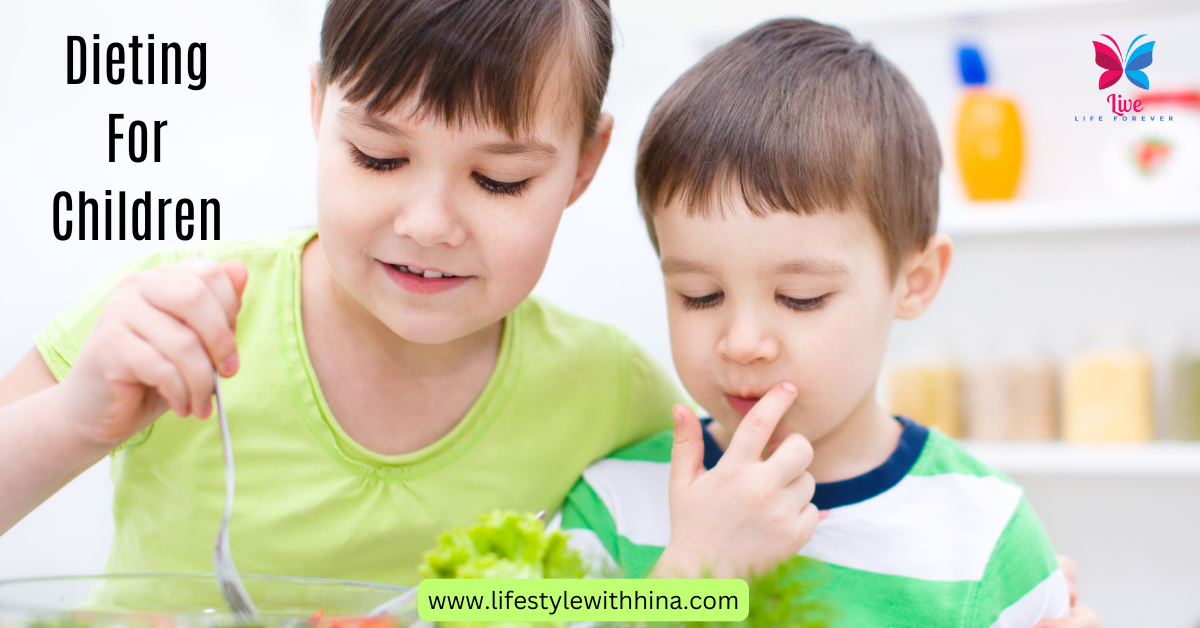The Benefits and Risks of Kids Dieting

Introduction
You may have heard of kids dieting, and you may be considering putting your child on a diet. You’re not alone. In this era of “perfection,” more and more parents are starting to think about dieting for their kids at a young age. But is this the right thing to do?
There are both benefits and risks to kids dieting, and it’s important to weigh them all before making a decision. On the one hand, dieting can help kids lose weight and improve their health. On the other hand, it can lead to problems with self-esteem and even eating disorders.
So, what should you do? The answer depends on your child’s individual situation. Here are some things to consider before making a decision about kids dieting.
What Is Kids Dieting?
Dieting has become a popular activity for kids, and it’s something that a lot of parents are struggling with. So what is kids dieting?
In a nutshell, dieting is when a person severely restricts their food intake in order to lose weight. For kids, this means eating very limited amounts of food or eliminating certain types of food altogether.
And there are a lot of reasons why kids might want to diet. They might feel like they’re too fat or too skinny. They might feel like they need to lose weight in order to fit in or be popular. Or they might feel like they need to diet in order to meet society’s standards of beauty.
Why Do Kids Diet?
So why do kids diet? Well, there are a few reasons.
Sometimes kids diet because their parents want them to. Other times, kids diet because they feel like they have to. They see images of impossibly thin celebrities and models online and in magazines, and they start to feel like they need to look like that too.
And then there are the kids who diet because they’re actually overweight or obese. This is a problem that’s on the rise, and it’s something that should be addressed sooner rather than later. Childhood obesity can lead to health problems down the road, including Type 2 diabetes, heart disease, and even stroke.
What Are the Benefits of Kids Dieting?
When it comes to kids dieting, it’s not about punishing your child or making them feel like they’re on a diet. It’s about making healthy eating a lifestyle choice that they will want to stick to. And there are plenty of benefits to be had when your child adopts a healthy diet.
For starters, kids who diet are more likely to have a better self-image and be happier with their appearance. They’ll also have more energy, be able to concentrate better in school, and be less likely to get sick.
But the benefits of kids dieting don’t stop there. Kids who eat healthy foods are also less likely to develop heart disease, cancer, and other chronic illnesses later in life. So it’s really important for parents to make sure that their children are getting the right nutrients at an early age.
What Are the Risks of Kids Dieting?
So, what are the risks of kids dieting? Well, for one, it can lead to an unhealthy relationship with food. When kids are constantly dieting, they’re more likely to develop eating disorders down the road.
Another thing to consider is that dieting can actually make kids gain weight. When kids cut back on their food intake, their bodies go into starvation mode and start storing fat. This can lead to some serious health problems down the road.
And finally, dieting can have a negative impact on kids’ mental health. Dieting can lead to feelings of guilt and shame, and it can be really tough to break the cycle of dieting once you’ve started.
How Can I Make Sure My Kid Is Safe While Dieting?
So you’ve decided to put your child on a diet. That’s a big decision, and it’s one that you need to take seriously. There are a lot of things to think about, like how safe your child is while dieting.
First of all, you need to make sure your child is getting enough nutrition. It can be tough to make sure they’re eating enough healthy foods when they’re trying to lose weight. So you might need to supplement their diet with healthy snacks and drinks.
You also need to make sure your child is getting enough exercise. Exercise is an important part of any diet, and it’s especially important when your child is young. They need to be active for their physical and mental health.
Finally, you need to make sure your child is safe while they’re dieting. They should never try to lose weight by themselves—they need someone to help them stay safe and healthy while they’re trying to lose weight.
What Are Some Tips for Kids Dieting?
When it comes to kids dieting, it’s important to strike a balance. You don’t want to put your child on a restrictive diet that will make them feel bad about themselves, but you also don’t want them to become overweight or obese.
So what are some tips for kids dieting? Try these:
1. Make sure your child is getting enough exercise.
2. Encourage them to eat healthy foods and avoid processed foods.
3. Let them have occasional treats, but make sure these are in moderation.
4. Avoid putting them on a “diet” where they’re going to feel like they’re always being deprived.
5. Help them develop healthy eating habits that will last a lifetime.
Conclusion
So, should you put your child on a diet? The answer is complicated. There are certainly benefits to dieting – your child may lose weight, feel better about themselves, and have more energy. But there are also risks – your child may develop eating disorders, become obsessive about food, and miss out on important nutrients.
The best approach is to talk to your child about healthy eating and weight loss in a positive way. Help them find a healthy balance between food and exercise, and encourage them to be active and have fun. If they’re interested in dieting, talk to them about the benefits and risks, and work together to find a plan that’s healthy and safe.
The bottom line is that kids dieting can be complicated and risky. It’s best to approach it with caution, and make sure your child is healthy and happy before making any changes.

.png)






.png)

